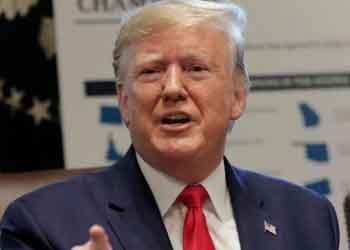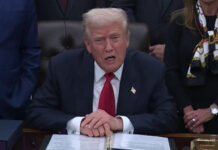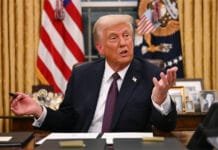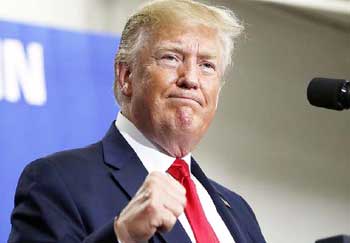Thousands of International Students Face Uncertainty After U.S. Government Crackdown
INVC NEWS
Cambridge, Massachusetts – : A sweeping directive from the Trump administration has thrown the academic future of over 10,000 international students at Harvard University into turmoil. The U.S. Department of Homeland Security has abruptly revoked the university’s participation in the Student and Visitor Exchange Program, demanding sensitive records of non-immigrant students within a strict 72-hour deadline.
This move threatens not only Harvard’s status as a global academic hub but also the educational security of 788 Indian students currently enrolled, alongside thousands of others from around the world.
Six Demands That Could Reshape Campus Privacy
Under the order, Harvard must comply with six stringent conditions laid out by Homeland Security Secretary Kristi Noem, who described the directive as a “warning shot to every American educational institution”. The university is expected to submit detailed records — including electronic and audiovisual materials — regarding any non-immigrant student linked to specific activities over the past five years.
The conditions are as follows:
Documentation of any illegal activities involving non-immigrant students, whether on or off-campus.
Reports on any dangerous or violent acts committed by non-immigrant students since 2020.
Records of threats directed at students or staff by non-immigrant students, regardless of location.
Any incidents involving rights violations perpetrated by non-immigrant students.
Complete disciplinary histories of all international students enrolled in the past five years.
Records tied to protests involving non-immigrant students on Harvard’s campus.
The administration insists that these documents, whether officially archived or informally recorded, must be turned over within three days.
Academic Community Reacts With Concern
Harvard officials have not yet released an official response, but the academic community is expressing alarm over the potential implications for student privacy, institutional autonomy, and academic freedom. Legal experts suggest that the directive could set a precedent for increased federal intrusion into university operations, especially those with sizable international student bodies.
Student advocacy groups warn that the action could deter future applications from foreign students and undermine the United States’ global reputation as an academic safe haven.
India’s Stake in the Controversy
Among the most affected are students from India — 788 are currently pursuing degrees across Harvard’s many faculties. Many of these students are now uncertain about their visa status, future course enrollment, and post-graduation opportunities in the U.S.
India, which traditionally sends the second-highest number of international students to American universities, is closely watching the unfolding developments. Education counselors and embassy officials have indicated they are prepared to intervene if necessary.
A Global Institution Under Federal Scrutiny
Harvard University, long considered the epicenter of global education, enrolls more than 10,000 international students from over 150 countries. The Trump administration’s crackdown signals a severe shift in federal policy toward foreign students and elite academic institutions.
Officials suggest this move may pave the way for broader investigations into other Ivy League and top-tier universities, especially those receiving federal funding while hosting international students.
Potential Legal Showdown Ahead
Legal scholars anticipate that Harvard may challenge the order in court, citing concerns over student privacy protections under FERPA (Family Educational Rights and Privacy Act) and constitutional questions about due process. The university’s legal team is reportedly reviewing its options as the 72-hour clock ticks down.
If Harvard refuses to comply, it could face severe consequences, including the revocation of federal funding, visa restrictions for its students, and further legal sanctions.
Privacy, Precedent, and Political Pressure
This latest escalation reflects growing tensions between the Trump administration’s immigration policies and America’s historically open stance on international education. The administration argues the measures are intended to protect national security, while critics view the move as a politically motivated attack on diversity and academia.
For now, Harvard’s students, faculty, and global partners are navigating a period of profound uncertainty — one that could fundamentally reshape the landscape of international higher education in the United States.
















